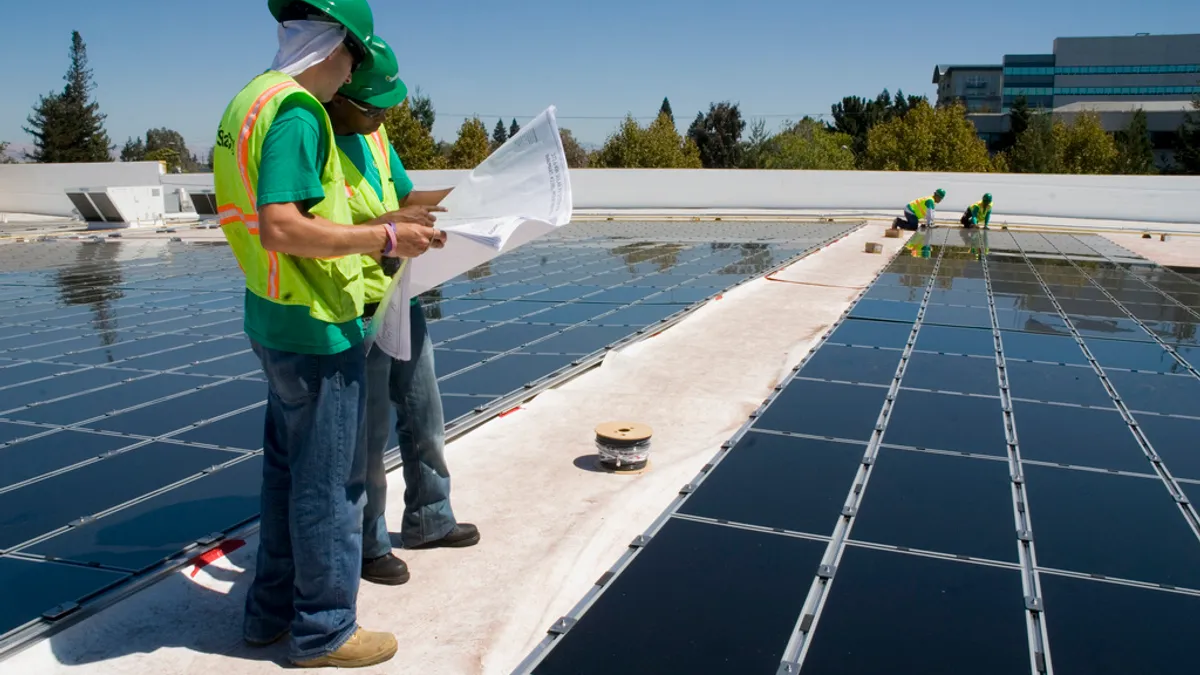Dive Brief:
- As residential solar grows, net metering policies that credit excess energy exported to the grid at the retail rate could damage the creditworthiness of investor-owned utilities, according to Fitch Ratings.
- Fitch said that inaction could lead to a "death spiral" for electric utilities as increasing power bills could propel customers to install more rooftop solar and recommended utilities increase fixed charges as a possible solution, SNL Energy reports.
- This builds on previous reports warning of grid defection and load defection as distributed energy resources, particularly residential storage and rooftop solar, become more economical for everyday consumers.
Dive Insight:
It's not the first time residential solar and retail net metering have been blamed for causing a utility "death spiral," and it won't be the last. Utilities often argue in policy debates that retail net metering cuts into utility revenues and shifts solar costs onto non-solar customers.
At the heart of these debates is the value of solar and how much solar customers should be compensated for the excess energy they export to the grid. Utilities claim they don't pay their fair share to maintain the grid while advocates argue utilities and regulators fail to quantify the full benefits that solar provides to all residents, regardless of who owns rooftop solar.
"The conundrum for regulators and utilities from an energy policy point of view is facilitating development of distributed … solar and its clean energy attributes without unduly burdening [non net-metering] customers with higher bills due to cross-subsidization," Fitch said in a report, "Net Energy Metering: A Secular Credit Challenge for IOUs," according to SNL.
Kelly Crandall, senior rates and research analyst at EQ Research LLC, told SNL that no utility has successfully transitioned away from net metering. "[There is] a lot of value to the laboratories-of-democracy approach and exploring it in different states, but it's also going to create a lot of conflict and variation, and we don't know how it will really end up," she said.
Some states have begun transitioning away from retail net metering, however. Hawaii eliminated its retail net metering program last year, replacing it with two new programs for customers who want to install solar — self-supply and grid-supply options. Nevada regulators last year rolled out a new net metering tariff that cut its retail rate remuneration closer to the wholesale rate while increasing fixed charges over a span of 12 years.
While arguably to the benefit of the utilities, both decisions appear to have had a demoralizing effect on the rooftop solar sector. Hawaii's solar industries reported a 39% drop in employment this year, while two major solar developers pulled out of Nevada after the decision was made.
But there may be light at the end of the tunnel for both sectors: New York utilities and solar companies struck a compromise deal earlier this year to transition away from net metering at a pace that wouldn't damage the value proposition for rooftop solar developers.













